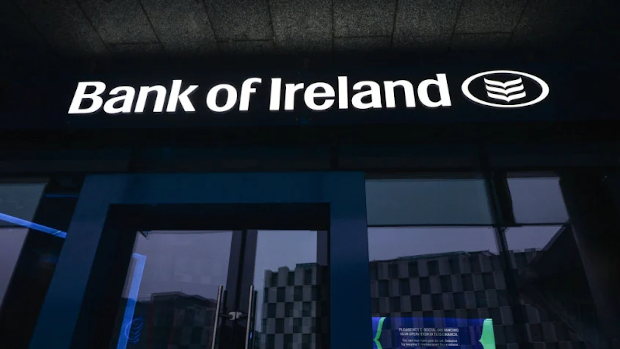
Banking on trouble
I’m guessing there are not many people today who remember back to when you had no choice but to suffer the inconvenience of queuing up in a bank branch office, waiting to be able to go up to the cashier to ask him or her to lodge some money into your account or let you take it out. Most people today would wonder where they found the time.
It’s not that long ago, however, since nearly every town in Ireland had a bank branch of one hue or another on the main street. By that stage, you had the choice of queuing to get a cashier to help you or using an ATM to withdraw money or even lodge it. For those unaccustomed to using machines or who felt uncomfortable about entrusting their hard-earned cash to a hole-in-the-wall, the presence of a human cashier inside the branch was a great solace to them.
There was always an assumption that this state of affairs could continue unaffected for many years because banks could afford to provide both options given the profits they made and the charges they imposed on customers for using their services. Such assumptions, while comforting, rarely last as long as we all believe they ought to.
And so it happened with banking. Customers were encouraged to take more of their custom out of the branch and do more banking online. The eruption in smartphone adoption and usage led to the creation of banking applications, allowing people to do their banking on the move, wherever they were, whenever they wanted to.
With the expansion of payment options through the increased availability of card payments, the convenience increased immeasurably. People were no longer hostages to banking hours, no longer captives to cash. Now they could pay with a tap of a card.
But there are consequences. The benefits that accrue from greater use of technology are fantastic – until something goes wrong.
And as this article on the RTE website points out, when it comes to Bank of Ireland there is a tendency for things to go wrong a lot more often than they should. The latest outage left people unable to access the bank app or do their banking online, which was inconvenience enough but things got slightly more surreal when it emerged that some people had been able to transfer or withdraw more money than they had in their accounts.
This led to big queues outside some ATMs as people did what they used to do with cashiers in bank branches and suffered the inconvenience of waiting to withdraw money. Only it wasn’t their money. It was free money. Or so they thought.
Meanwhile, people who had deposited money in ATMs were left anxious and upset when their balances were not updated on the bank app. There was no money. Or so they thought.
Needless to say, whatever inconvenience customers experienced, the bank was able to rectify the situation so that those who had taken money they didn’t have would have to pay it back and those waiting for their money to show up, would have to wait.
Trust issues
Responding to the debacle, the bank’s chief executive, Myles O’Grady, said: “Banking is based on reputation and trust. We have damaged this with our customers and wider society. We are working to put things right.”
Which was good of him, I suppose. In an effort to be seen to be doing something, Finance Minister Michael McGrath asked the Central Bank of Ireland “to establish a full account of what happened, why it happened and what will be done to avoid a repeat”. He added that officials were asked “to engage with the Central Bank on its assessment of the robustness of this Bank of Ireland incident, and more broadly the robustness of the technology systems used by regulated, customer-facing financial service providers here in Ireland, and whether any further steps are required to reduce the risk of outages that impact on customers.”
As fate would have it, he couldn’t have asked the Central Bank at a more opportune moment because barely a few days later, that esteemed institution was apologising for problems with the robustness of its own technology systems and an error that may have affected the credit rating of 20,000 people after it stored borrower information on its Central Credit Register (CCR) for longer than it should have.
Inconveniently, the problem had been resolved on 7 August, more than a week before the Bank of Ireland suffered its own outage, 10 days before Minister McGrath asked the Central Bank to step in and 16 days before the Central Bank apologised.
Still, perhaps it’s better that an organisation which has experienced an IT glitch is investigated by another that has suffered the same experience. And Minister McGrath will surely take some comfort from the knowledge that the institution in charge of assessing “the robustness of the technology systems used by regulated, customer-facing financial service providers here in Ireland, and whether any further steps are required to reduce the risk of outages that impact on customers” will be able to bring first hand experience to bear on the matter.
That said, it’s somewhat concerning for the effectiveness of that process that the Central Bank, while apologising about the problem with the CCR, was unable “to determine with accuracy the extent to which credit applications were adversely affected by this incident”. Let’s hope it has better luck and greater accuracy in its assessment of the technology systems of other financial service providers in Ireland.







Subscribers 0
Fans 0
Followers 0
Followers